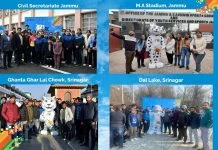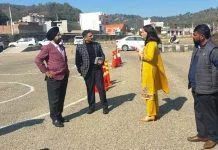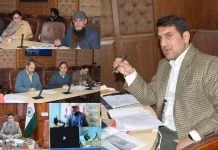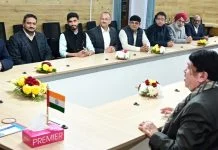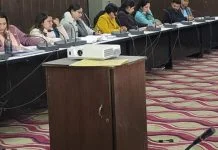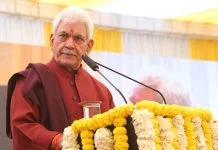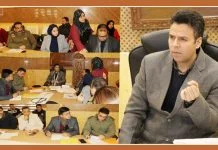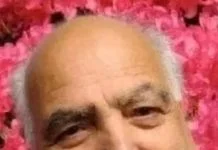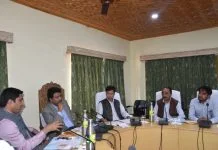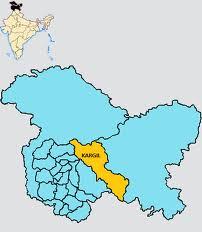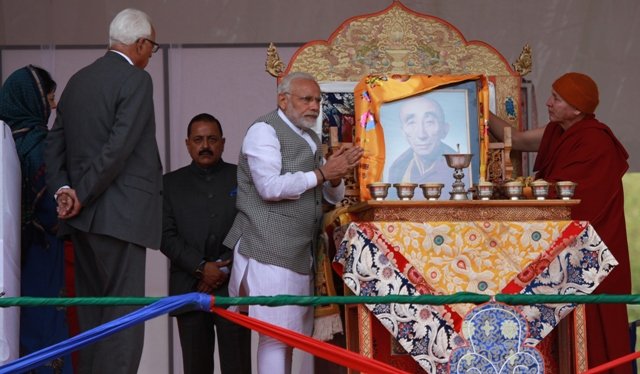Condemning the people who try to demonise Islam by perpetrating acts of terror on innocent persons, Chief Minister, Mufti Mohammad Sayeed, Sunday urged Muslims all over the world to unite in isolating and exposing the nefarious designs of such divisive forces.
He lauded the immense contribution of visionary leaders like Maulana Abdul Kalam Azad who, he said was a strong advocate of united India and one who opposed two-nation theory that led to the country’s partition in 1947. “It is due to the untiring efforts of stalwarts like Azad that Indian Muslims today are setting a perfect example for their counterparts around the world in following the teachings of Islam in its truest sense,” he said, while referring to the series of attacks that shook French capital yesterday killing nearly 130 people.
The Chief Minister made these observations while addressing a huge gathering of people during the maiden Convocation function of Aamir Kaleemi Arabic College, which began with the recitation of the holy Quran.
Former Union Minister for Railways, C. K. Jaffar Sherrif, Chairman, SAK Group of Educational Institutions, Peerzada Syed Manzoor Ahmad, Sajjada Nasheen, Silsil-e-Aamiria, Peerzada Syed Mohammad Razaul Haq, Maulana Dr. Syed Naasiruddeen Jeelani and Maulvi Sathak Hussain, besides a host of educational and Islamic luminaries were present on the occasion.
Referring to the rising turmoil in various Muslim countries, Mufti Sayeed said even Imam-e-Kaaba had condemned such acts of extremism committed by certain vested elements to malign the message of peace preached by the great religion of Islam. “These are troubled times for Muslims and we need to join our hands together to isolate and expose these fringe groups,” he said, while asserting that violence never was and will never be solution to any problem.
Citing examples of unique art and craft of places like Moradabad and Mirzapur, the Chief Minister exuded confidence that Muslims who are blessed with enormous skills will positively contribute in the growth and development of the country. “We need to provide leadership and guidance to the highly-skilled Muslims so that they play their part in making India a global force to reckon with,” he added.
Drawing the attention of the audience towards UEF Trade Summit that aims to bring Rs.10,000 crore investment over the next five years, the Chief Minister hailed the role of its young president, Dr. Ahmad A. R. Buhari to promote entrepreneurship among Muslims in various sectors including power, infrastructure, warehousing, logistics, real estate, education, health, tourism and new and renewable energy.
He said UEF should hold a National Economic Summit and invite the Prime Minister so that silent strides made by India’s largest minority community, which stands at 14 per cent of country’s population, are brought into public domain. “I was happy to witness signing of MoUs totalling over Rs.2000 crore during UEF summit which will help Muslims to scale up their economic activity,” he observed.
On turning around the abysmal condition of majority of the Muslims, the Chief Minister termed the Sachar Committee recommendations as a positive step, which encourages improvement in indicators of growth in which Muslims are lagging even behind SCs and STs. He said he will vigorously pursue with the Centre the formulation of a Monitoring Committee to see that the recommendations of the Sachar Committee are implemented. “We need a comprehensive programme to overhaul the education system by blending modern skills with traditional religious values,” he said, while favouring a Scheme of Scholarship for bright poor students, which will enable them to get a level-playing field at the cutting edge level.
One of the most important recommendations of the Sachar Committee, framed by the previous UPA government, was providing more Muslim youth, especially girls, access to education so that the community benefits from emerging opportunities which will spur economic growth.
Asking students to acquaint themselves with modern tools of education to remain competitive in a world of cut-throat competition, Mufti Sayeed singled out training and skills as two most important factors which enhance chances of gainful employability. “For you, it is now a transition from the world of ideas to the world of action. With skills at your disposal, I am sure you will be able to make a mark,” he said, while hailing the efforts of religious saints like Shah Hamdaan (RA) who brought with him skills like carpet weaving and papier machie to boost livelihood of people in the valley.
Laying stress on developing institutes of excellence, the Chief Minister said he will adopt Aamir Kaleemi Arabic College to make it a state-of-the-art educational institution. “I will discuss the measures required to be taken with the college management so that we link education with jobs by introducing market-driven courses,” he stated.
Later, the Chief Minister distributed citations and degrees amongst students who successfully completed seven-year Aalim Course from the college. He praised the stupendous efforts of young Muslim scholars who memorised the holy Quran by heart. “I am confident that even as you leave the relatively-sheltered world of this institution, your education here will have prepared you better to stand on your own and excel in whatever responsibilities assigned to you,” he added.
The Chief Minister also praised SAK Group of Educational Institutions for taking up the onerous task by blending religious education with secular modern outlook.
In his address, C. K. Jaffer Sheriff described the first Convocation of the Aamir Kaleemi Arabic College as a historic occasion and a symbol of national integration. He suggested several measures to improve the socio-economic condition of the Muslims in the country.
Established with 12 students and five teachers at Pannur, the expansive Aamir Kaleemi Arabic College has grown into a vibrant institution today. All facilities are provided free of cost amongst student, particularly those from poor economic background.

